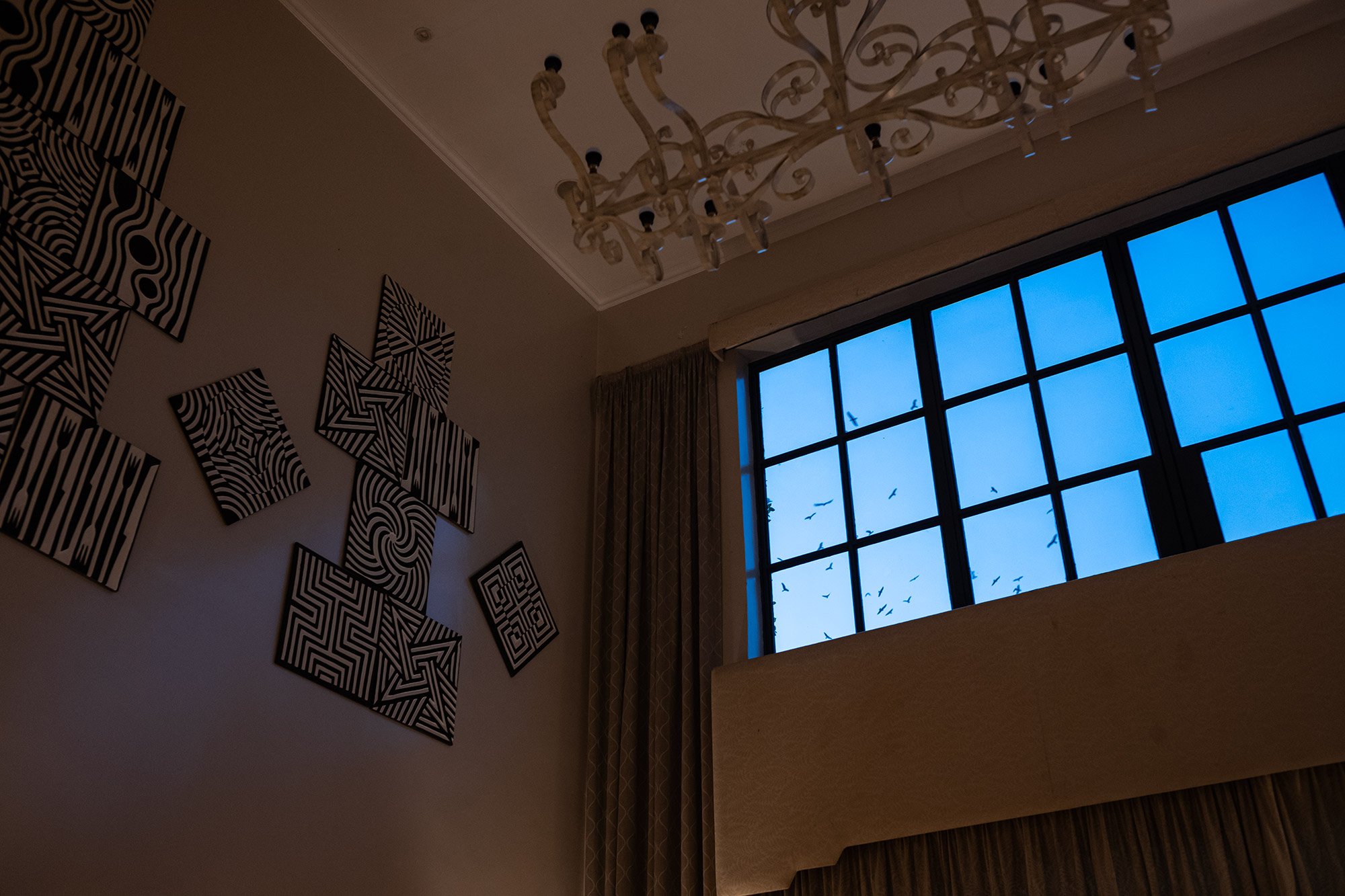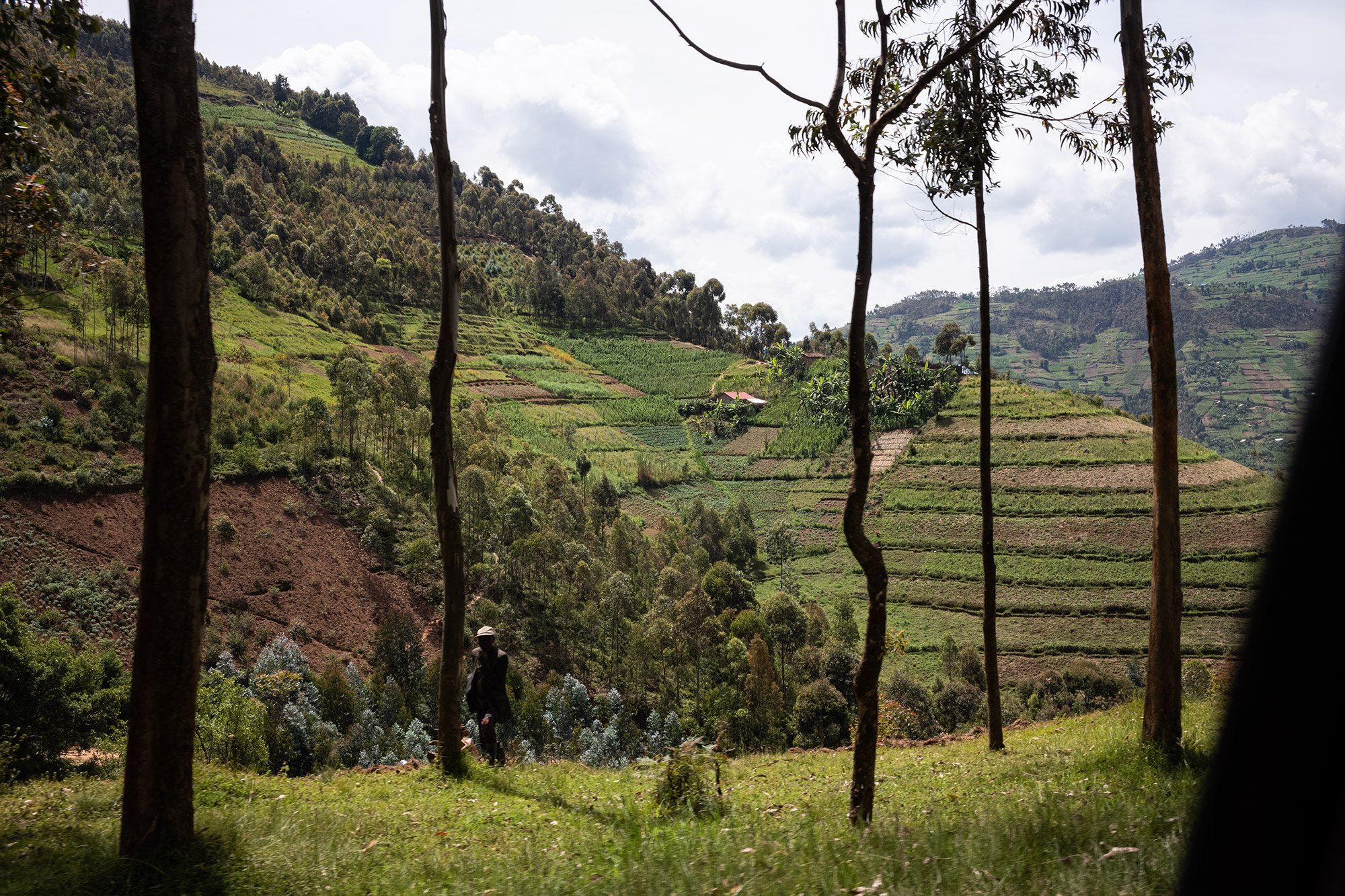
Rwanda & Uganda:
Chapter one
The road to Musanza, Rwanda.
At 10:00 Hussein is already parked in the small lot of the complex. Salam alaykum, I say. Alaykum salam, he returns.
He’s come to take me to Musanza, one of the fastest growing cities in Rwanda and the jumping off point for gorilla tracking in Volcanos National Park. As we drive towards the edge of the city he tells me he’s one of only 5% of Muslims in the country. I ask him where the mosques are in Kigali. There are few, but there’s one near to where we are right now, just down the street from the beautiful façade of the public library we just drove past.
We run into some traffic and a slight slowdown. As we approach the root cause we see a tuk tuk stopped in the middle of the road. Passing, we see the driver hunched over, replacing a flat tire.
Towards the edges of the city he points the out bicycle taxis that line the street. They’re not allowed in the city center but abound in the suburbs. He tells me that the road we’re on is a popular one for them as it’s not as steep as some of the others in the area.
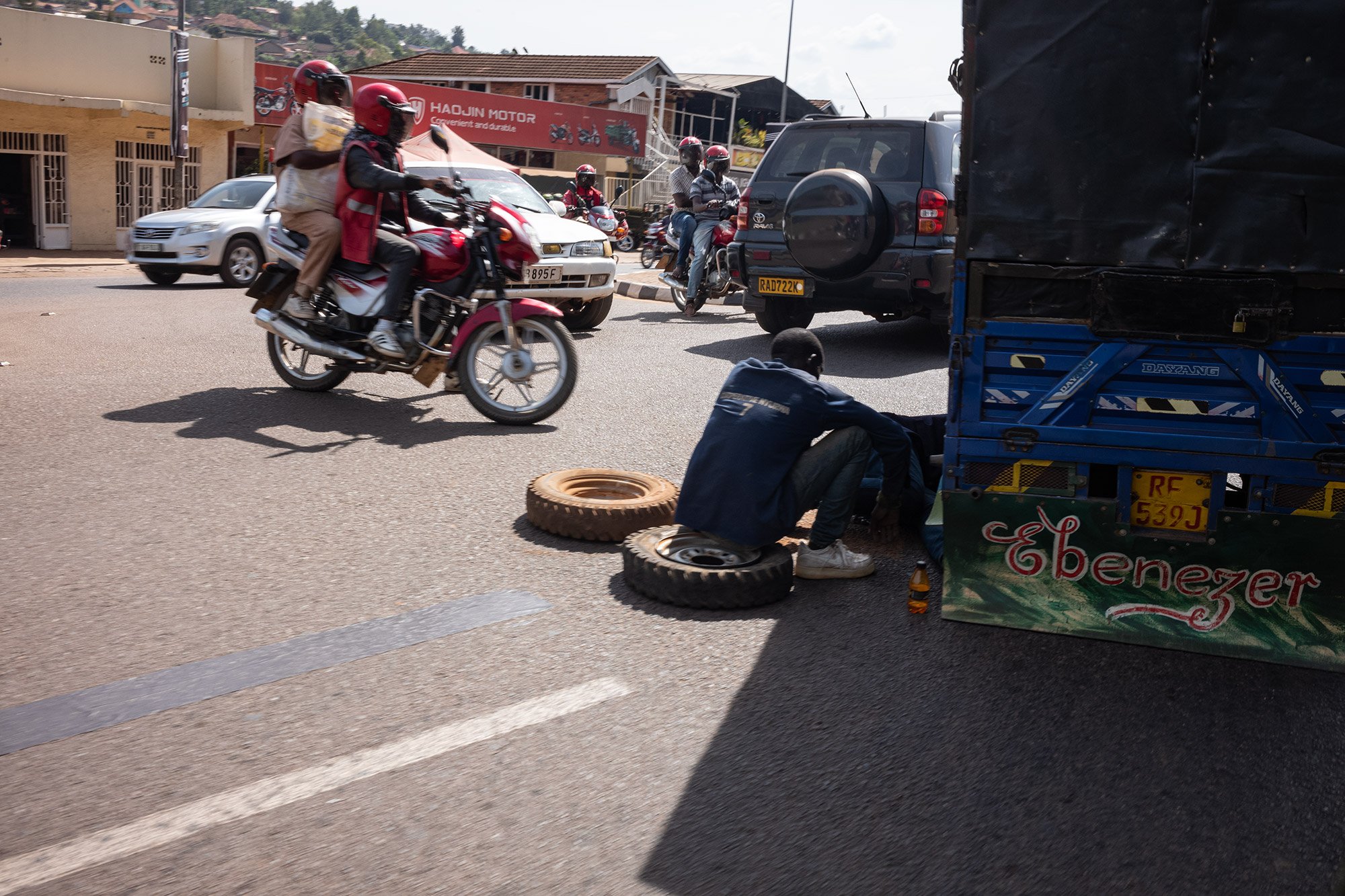

We climb out of the city into the mountains. Along the road children are using plastic jugs as sleds. He tells me that there’s a spring up in the mountains that people come to fetch water for their homes. It’s a long hike up and I ask there are plans to bring the water to the people and he says yes, there are. It’s a process.
As we finish our climb he points out Mt. Kigali on the other side of the valley we’re on and tells me the city is named after the mountain. The word means big. A little further on, we’re also rewarded with views of the city itself; its skyscrapers jut out from the hilltops.
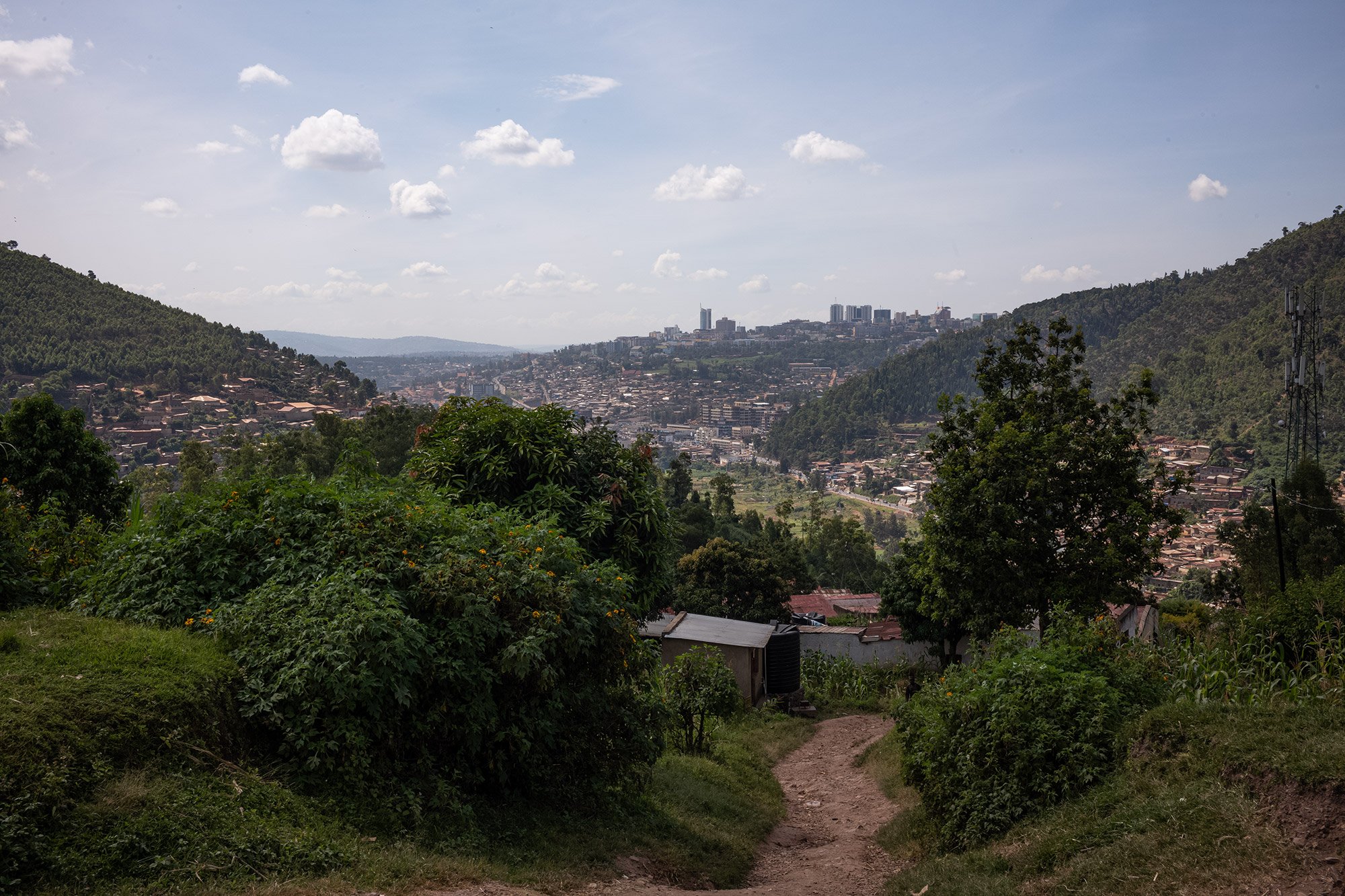
As we drive he fills me in on details of the country. He points to the fields that seem to climb up every mountainside and tells me that 75% of Rwandans are farmers. Most of the produce is sold internally to feed Rwandans.
He points out banana and beans and potatos and pineapples and corn. Once he points out a tea plantation down the road. He points out markets for produce, one specifically for sweet potatoes, another for fruits. He tells me that market days vary. He points out a cement factory as we near our destination.
There’s a steady stream of people walking on both sides of the road. It’s Saturday and people are out to markets or for leisure. Tomorow, since it’s the weekend, there’ll be children lining the roads and shouting out at us, Hussein tells me.

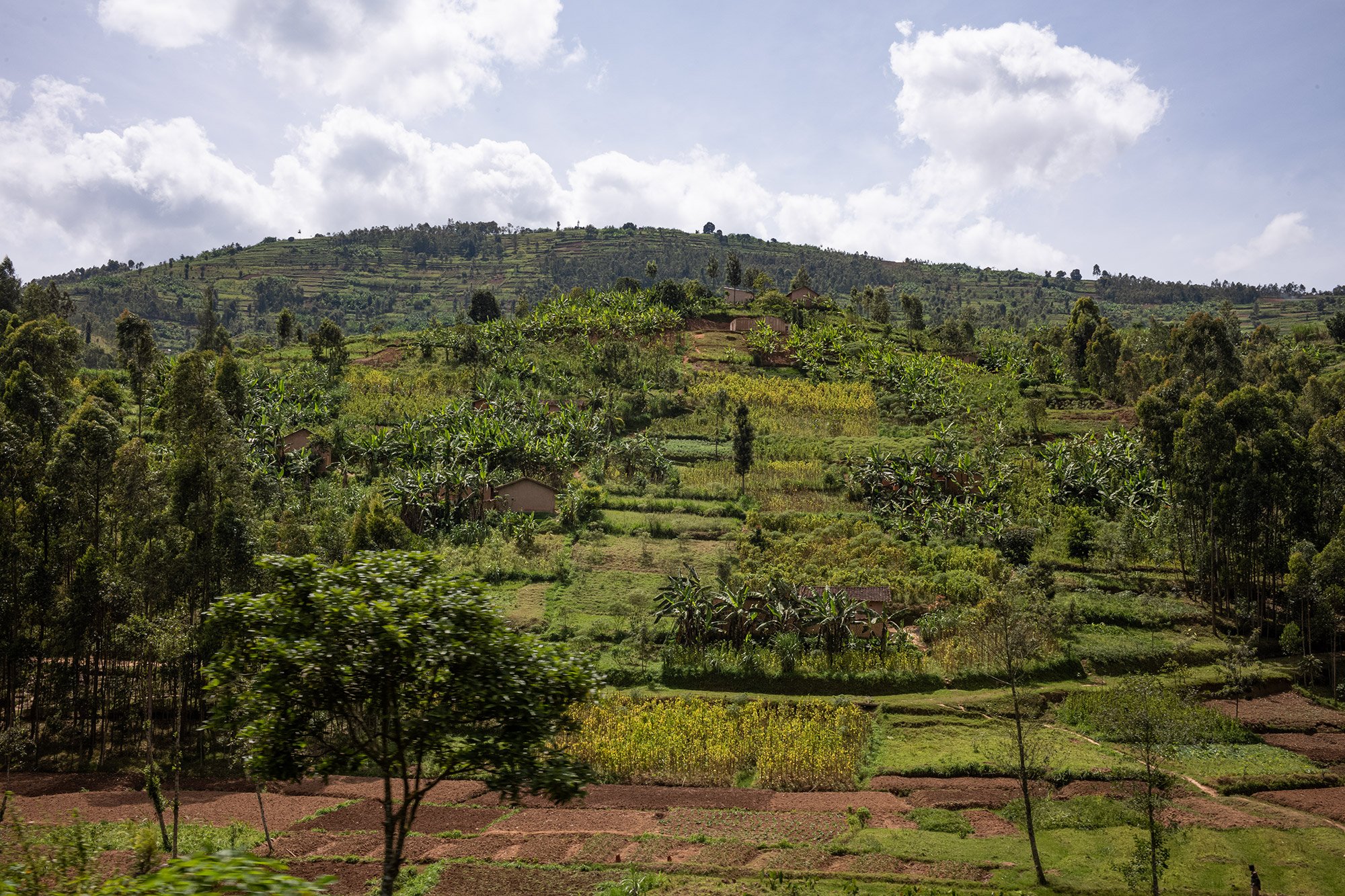

I ask about his family. He tells me he has four children. A boy, then two girls, and another boy. The eldest is in university; the girls are in boarding school, which is paid for by the government. His youngest, seven, lives at home. He tells me that his family is Muslim but they are few in number in Rwanda. I ask him if his parents are also originally from Kigali. He misunderstands me and tells me that they are no longer with us, victims of the genocide.
I ask him if people want to talk about the genocide or not. He says they do for the most part. The government encourages it. He also tells me that there are no more Hutus and Tutsis. Everyone is Rwandan. The younger generation doesn’t even acknowledge the former Hutu and Tutsi divide. I tell him that I feel the younger generations augur hope in me. There are so many trumped up issues that have been created in order to divide people in an attempt to broker power. So many “issues” the younger generations seem to recognize as none of anyone’s business.
At one point we pass a sign I had seen at the genocide museum and ask him what it means. Remember. It’s Kwibuka 29 now because it’s 29 years since the genocide. Last year it was 28. Next year it’ll be 30.



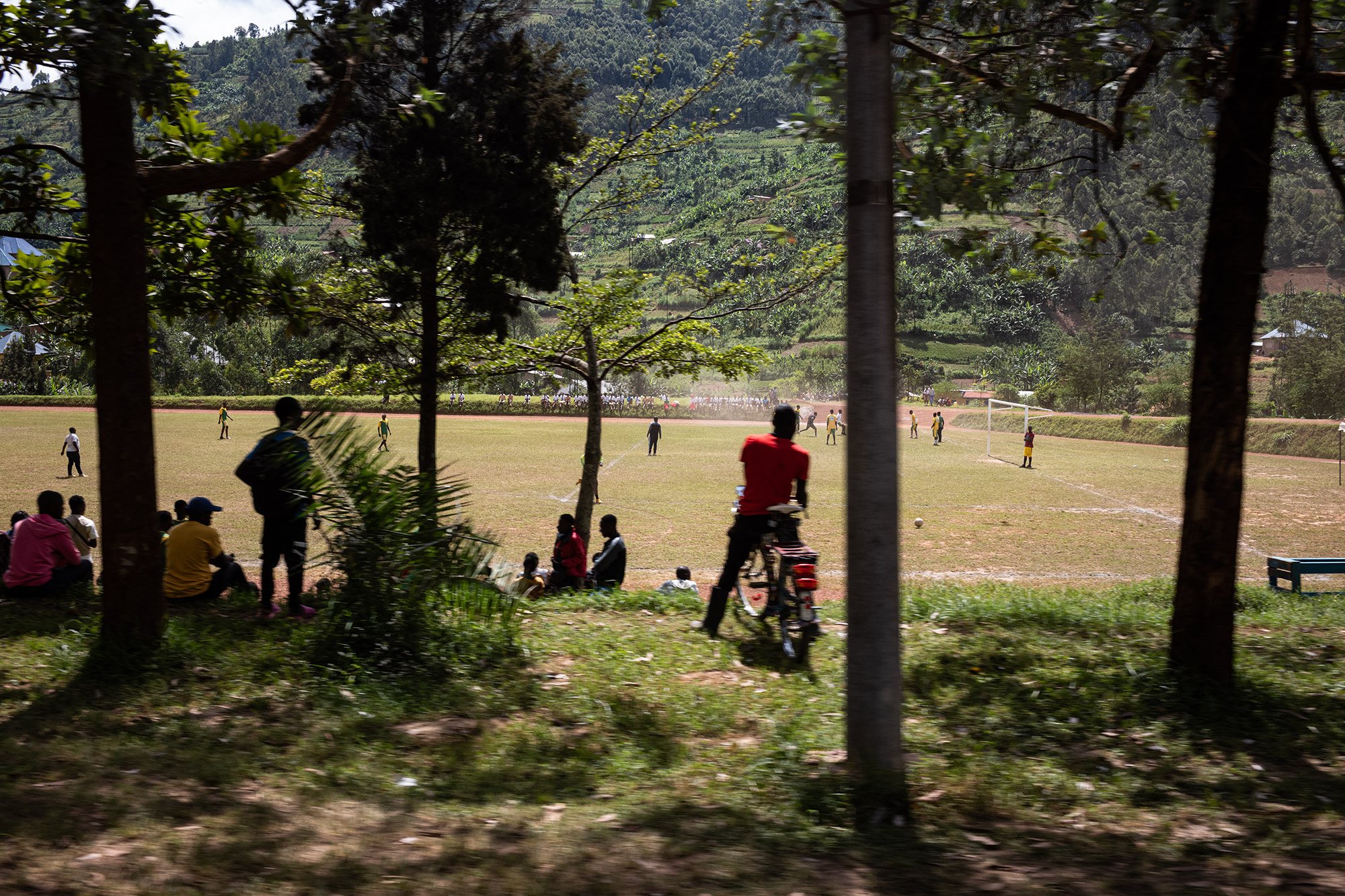

We pass more villages and small towns. Now and again we pass a football field; they’re never empty. And always there are people walking by the side of the road.
It’s a beautiful road, sealed and smooth. Husain tells me it used to be full of potholes but it was resealed a number of years back. It’s a much better ride.
At one point we stop by a market and he asks if I want to take a look. He’s already pulling the car to the side so I say why not.

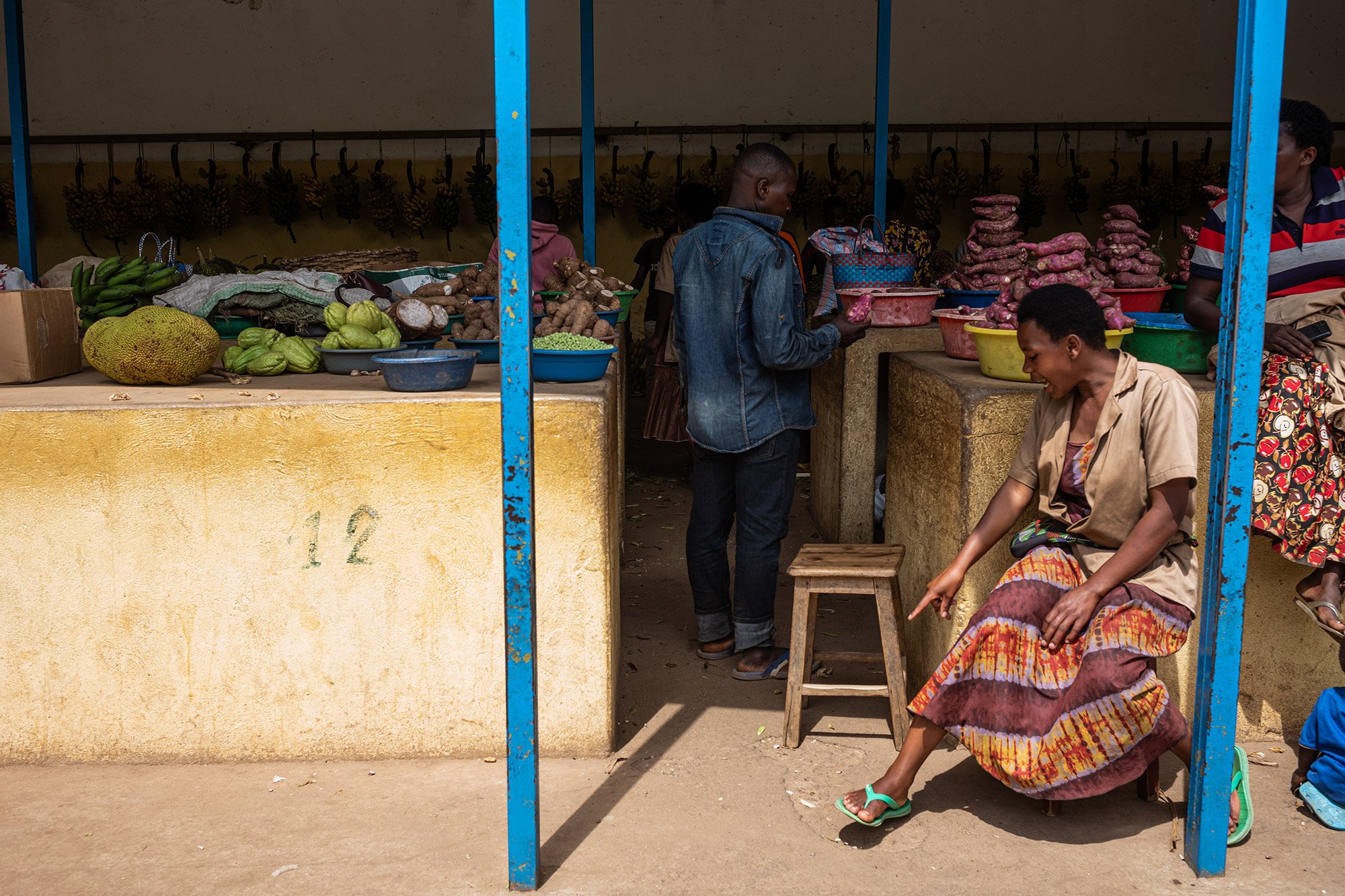

Looking at the landscape Hussein tells me there that mudslides are still a common occurance. The government has been trying to reforest the mountains in an attempt to assuage this. Still the dirt roads and paths through the mountains turn to mud during the rainy season and sometimes the road gets covered.


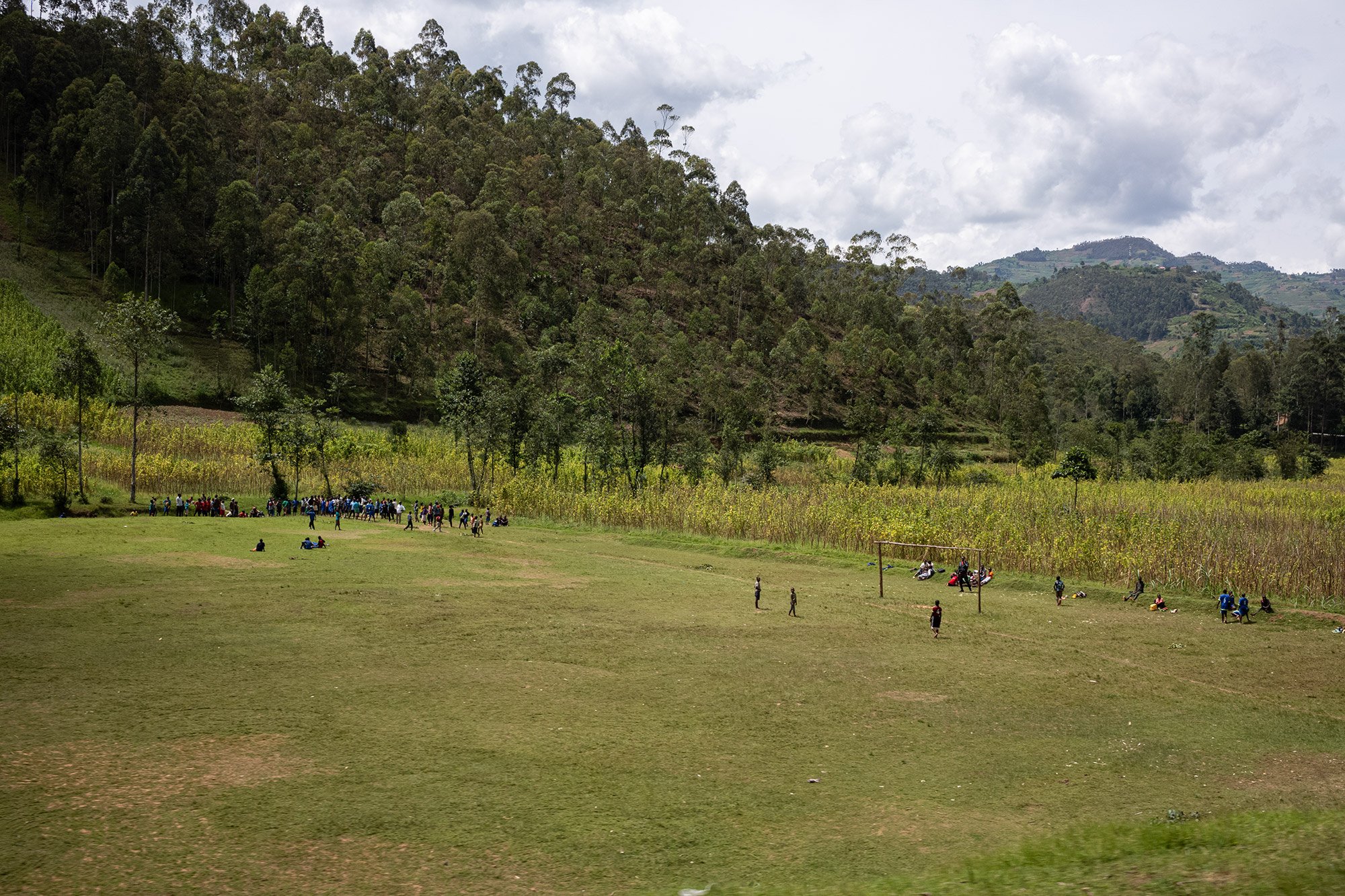

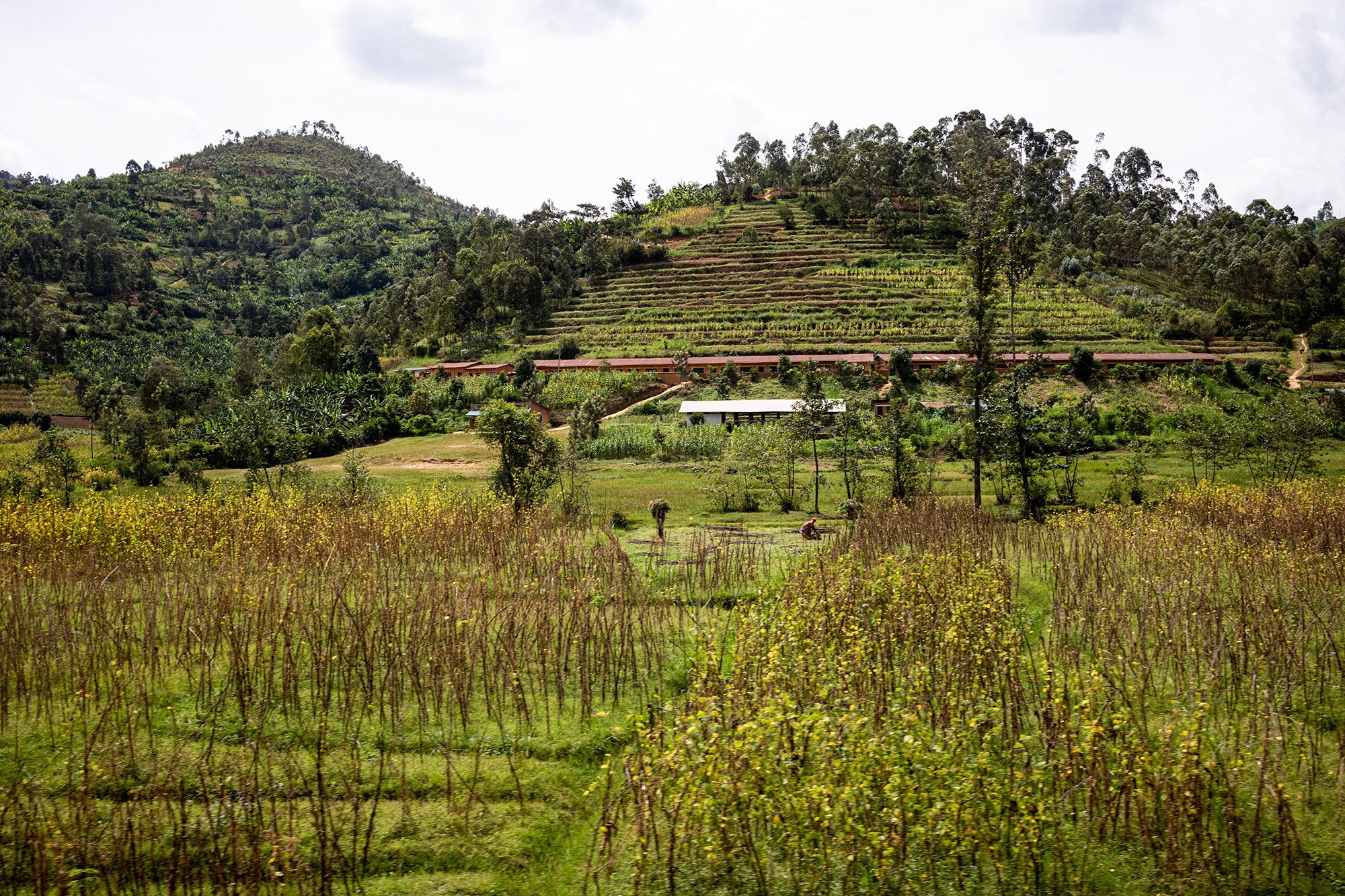

Nearing Musanza I spot a cemetery cut into the terraces on a nearby farm, the white headstones like rows of teeth on the hillside.
Further on Hussein points out the numerous brick factories that line the road. Red bricks dry in the sun, cut out of the hills, the red dirt and clay exposed like deep wounds surrounded by the cool green bush.

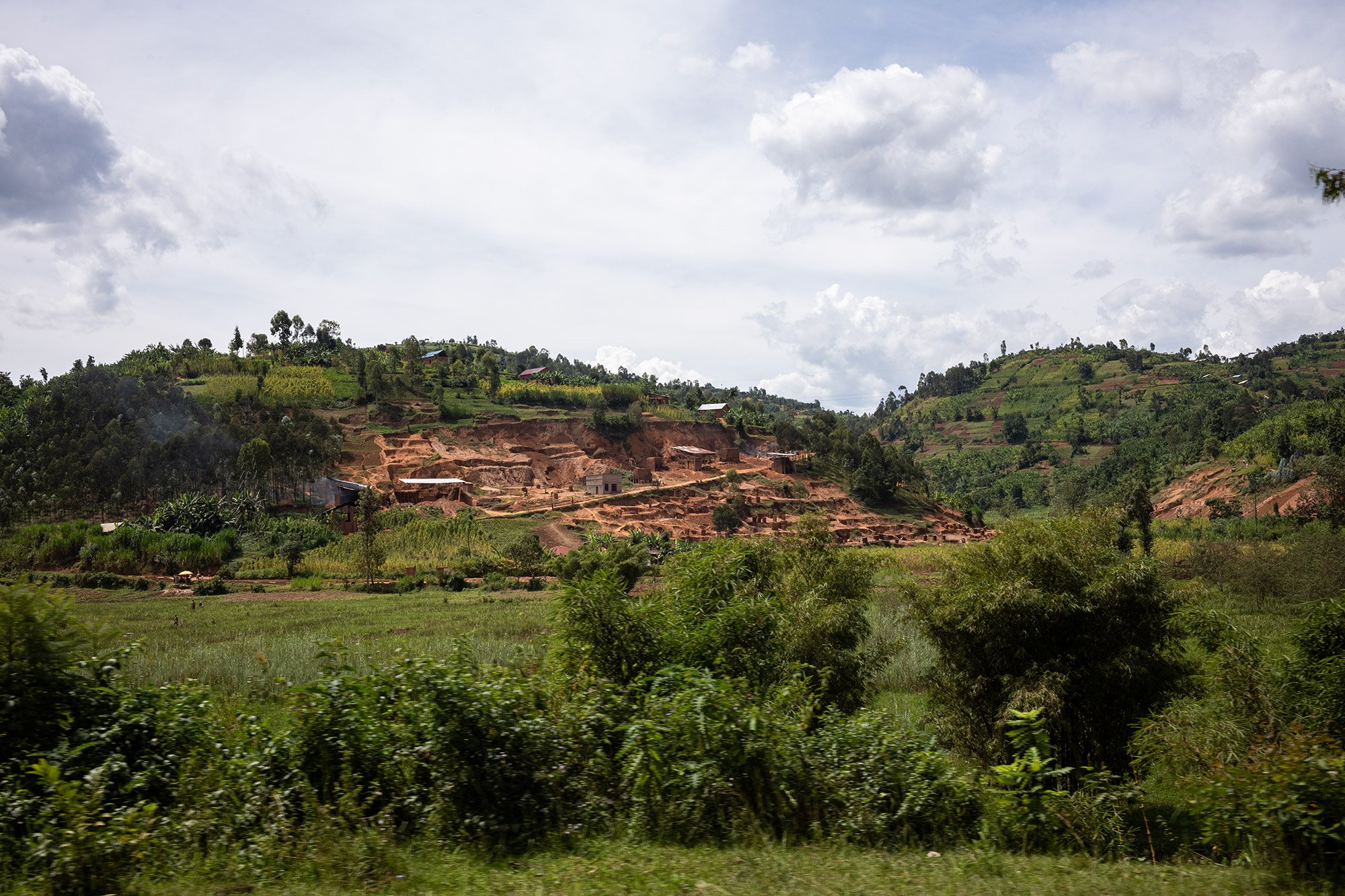
Cresting a mountain he points out the five volcanos of the park. The tallest are shrouded in cloud.
I ask him how many times he’s seen the gorillas. Four he tells me, the last time in 2015. I’m surprised. I thought he would accompany guests as the guide, but he tells me no. Park guides escort tourist groups and trackers follow the gorillas. The trackers start at six in the morning and don’t return until six in the evening. It’s a well-run operation. If he goes he goes as a tourist and has to pay for a permit. For Rwandans it’s US$200; it used to be US$30. Foreigners pay US$1500 for a permit.
I ask him if he’s interested in joining me on the trek if there’s room; I’ll pay for his permit. He thanks me and tells me he’ll call and ask. I hope there is room; it’ll be fun to share the exerience with him and to be able to talk about it on the ride home.
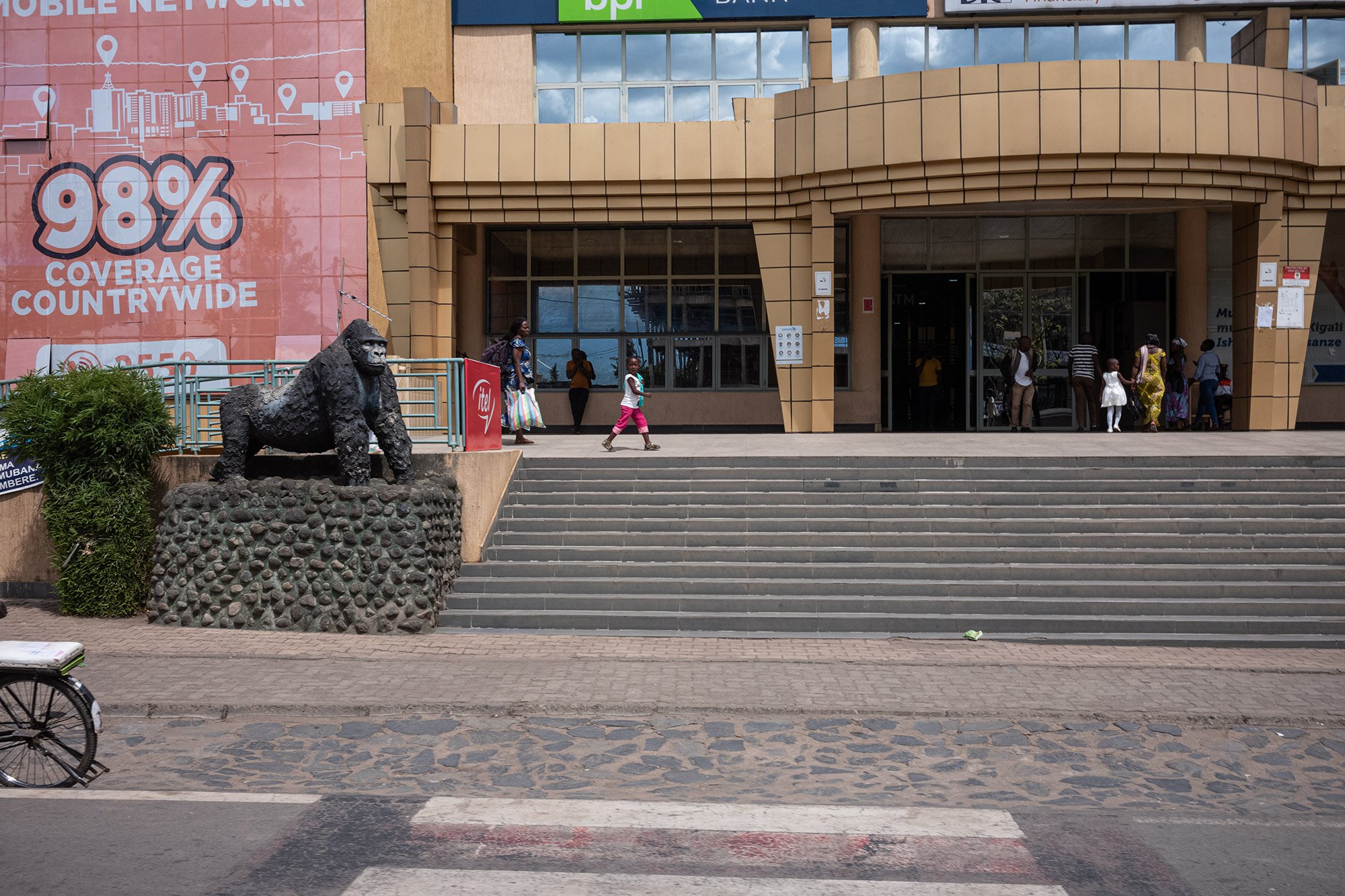
In Musanza, they lean into their proximity to gorillas. Gorilla sculptures adorn various plazas and intersections. I find it endearing, a hopeful preview of what’s to come.
Hussein leaves me at The Bishops House, a boutique hotel in town. Opened since 2017, they recently won an award for the best boutique hotel in Rwanda. Steve, the general manager is rightfully proud. Hussein tells me it’s his favorite hotel in town.




I arrive in time for lunch and enjoy a four-course meal and then a swim in the pool. It’s not heated, but in the late afternoon it’s nice to cool off from the sun. Afterwards I lounge by the pool and take a nap.
In the evening, I check out the library. They havea copy of Gorillas in the Mist by Dian Fossey and I settle down in the sitting room to immerse myself in learning about what I’m about to embark upon the next morning. As dusk approached I looked up through the window to see swarms of kites. I put the book down and stepped outside to watch them circle around the trees, silhouetted against the deepening blue skies.
10 June 2023
🇷🇼
